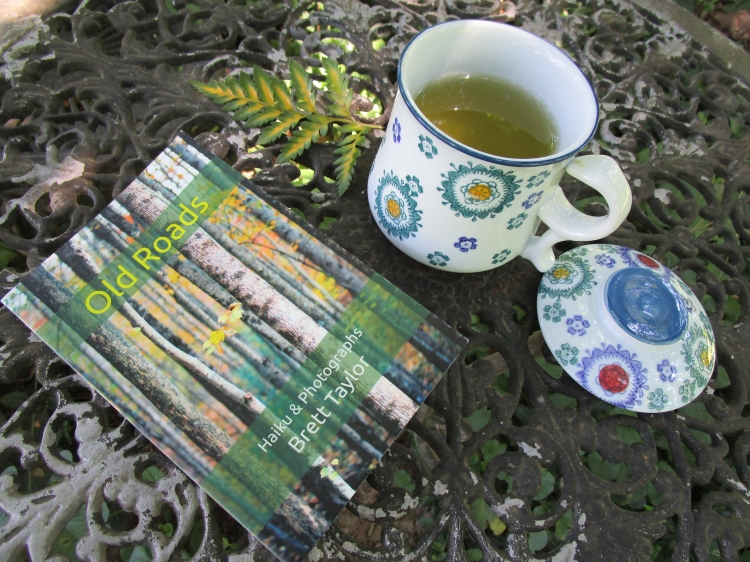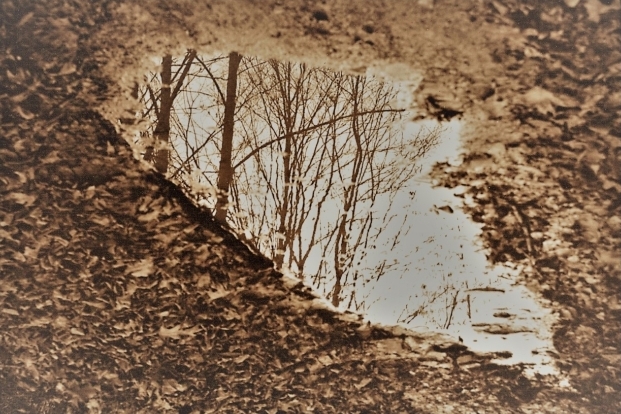The poetic form haiku originated in China as hokku before gaining ascendency in the 17th century as Japan’s chief literary form. Traditionally, the haiku was a succinct poem of three lines, the first line containing five syllables, the second seven syllables, and the third five syllables, for a total of seventeen. The haiku typically encapsulates an instant in time, seizing a moment at its highest expectation and tendency toward the new. Imagine a sea wave’s peak just before beginning to crash.
Universally regarded as the best of Japanese practitioners was a man named Basho – poet, samurai warrior, and tutor to the emperor’s son. Basho’s haiku typically captured the flux of seasons and the attendant melancholy experienced by the observer. Over time, the form was coopted and practiced in other literary traditions. Nowadays, there are jazz and blues haiku, cowboy haiku, and, most notably, Appalachian haiku, like those from our featured poet, Brett Taylor.
Taylor explains his style in an essay, “Walking Old Roads,” included in his book Old Roads: Haiku & Photographs:
Writing came naturally to me, but finishing things wasn’t always easy. The brevity of the haiku form appealed to me. Finishing a story was difficult, but a three line poem was simpler, or so it seemed. Writing can be easy, but writing well is not always so. As it turns out, writing a good poem is not as simple as it seems. Like many seemingly simple things, haiku becomes more difficult as you think too much about it . . .
I don’t like to apply too many explications to these little poems. Applying too much attention to a haiku is like picking up a moth by the wings. Sometimes I wonder if I haven’t left something out, but I generally think it’s for the best. Letting poetry speak for itself I mean.

Appalachia Bare is proud to present some of Brett Taylor’s haiku from his book, Old Roads: Haiku & Photographs, followed by a small gallery of his poignant photographs. Brett Taylor’s haiku wonderfully encapsulates Appalachia’s natural and cultural worlds. The poems are moving and spark visuals that stay with the reader. The book is small and travel worthy – perfect to stick in a backpack on walks or hikes and find a quiet place to delight in them. Visit Taylor’s page on Chapter 16 to view more of his work.
blank pages
no ink to be smeared
by the rain
the old wooden swing
no one uses anymore
the children are grown
bearded man
sweeping the sidewalk
curses starlings
on a stump
trying to recall a dream
butterfly floats by
amidst other old books
a hymnal
the red spine splits
dense fog
obscures the path
the deer vanish
sideways
in heavy gusts of wind
bending cornstalks
Gallery:
Old Roads: Haiku & Photographs can be purchased from the following places (just click the images for the links):
Brett Taylor was born in Oak Ridge, Tennessee, to parents who lived in a trailer park in Oliver Springs. Since then he has lived in various Tennessee towns and cities. He worked at Tiger Haven, a cat sanctuary, for several years; and he was a union officer and volunteer organizer for UNITE! and UNITE HERE! local 2614. He began publishing haiku in 1991. His photographs have been published in Green Mountains Review, Folio, ampersand, redivider, Big Muddy, and The San Pedro River Review. He has also written for The South Carolina Review, Skeptical Inquirer, and Fortean Times. He is currently working on a film review compilation.
**Featured image by Brett Taylor
*** Introduction by Appalachia Bare’s Associate Editor, Edward Francisco







Love these—very evocative as good haiku should be. I like the discipline imposed by the haiku short form. The poet must make every word count and count on creativity.